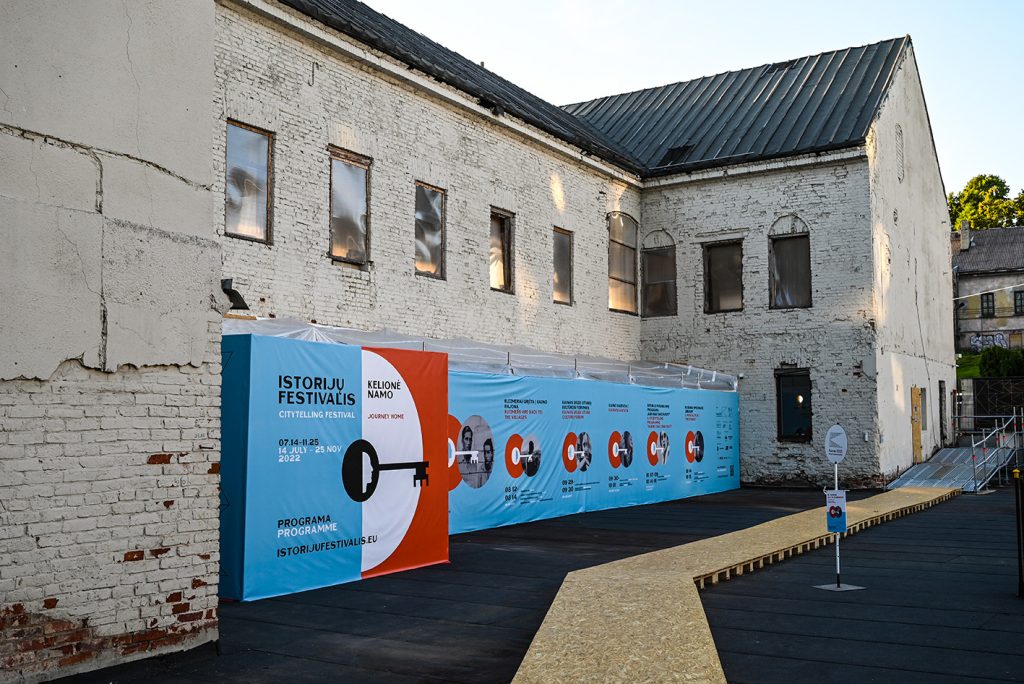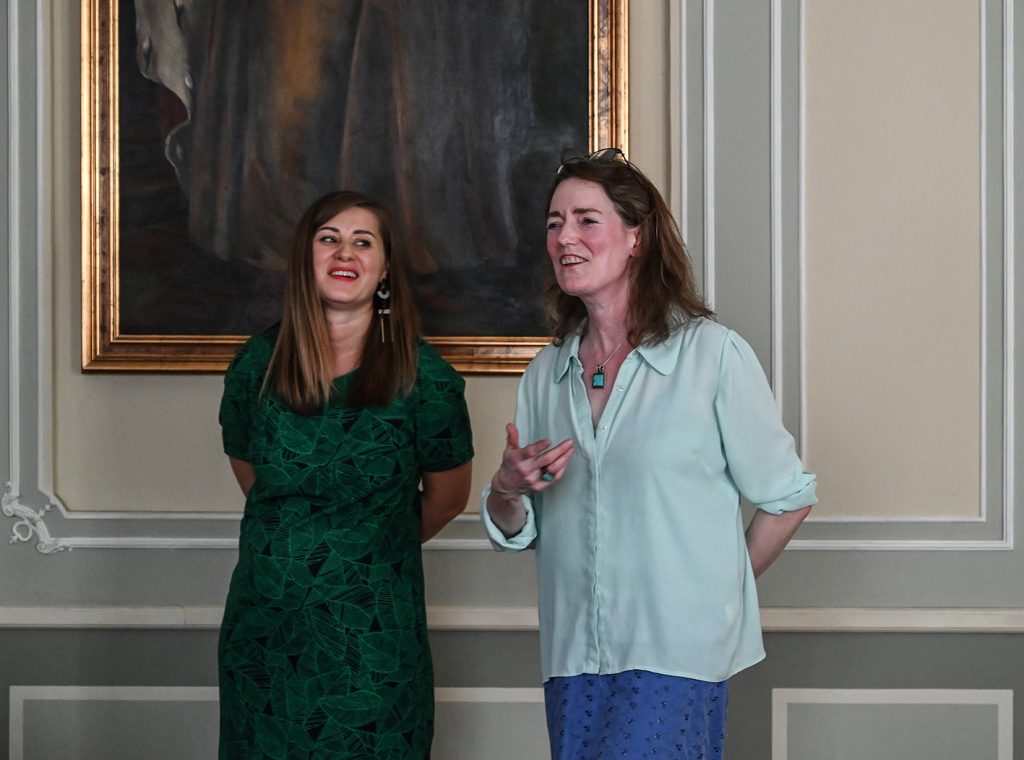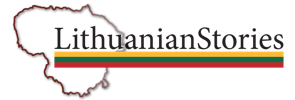A story of Kaunas, a story from the past, about the Holocaust. Jenny Kagan’s exhibit is part of the Citytelling Festival by Kaunas 2022 Memory Program.
A touching exhibit has been opening in Kaunas in an old abandoned building beside the Presidential Palace. It tells the story of Jenny Kagan’s parents, Juozas Kaganas and Margarita Štromaitė, survived from Holocaust. It’s a multimedia exhibit that offers a touching experience to the audience remembering what happened during the Nazi occupation, to know the atmosphere of the period.
WATCH OUR VIDEO
The exhibit is part of the Citytelling Festival, Kaunas 2022 Memory Program, whom goal is to tell the stories of people lived in Kaunas in the past. Dark pages of the city, but important to remember. They are the stories of those who lived in Kaunas and suffered the Nazi occupation before, and then the Soviet regime.

Jenny Kagan was born in UK where her parents escaped. Their story is a testimony of the horror of the Holocaust, but also a story of hope and thankfulness. Her parents survived thanks to the help of Vytautas Rinkevičius, a man who worked in an iron foundry, where also Jenny’s dad worked forcibly as a Kaunas ghetto prisoner. Vytautas found them a hiding place inside the foundry. A very small room, like a box, of just six square meters, saved their lives. Currently Vytautas Rinkevičius is a Righteous of the Nations at the Yad Vashem Museum in Jerusalem.
Jouzas and Margarita met each other in the Kaunas ghetto, and then they married.

All the installations inside the building are available to visitors. They can touch everything, browse diaries and books, seat on chairs and armchairs, reliving that period. There are also the stories of Jenny’s and Jouzas’s grandparents. It’s a unique experience that all of us should try.
A huge Jewish community lived in Kaunas before the World War II. Almost 40.000 people. Most of them were killed by the Nazi and their collaborators. Jenny tells her personal story, telling what her mother and her father told. In the exhibit there are audio records by her mother, the reconstruction of the small room where they were hidden.
Daiva Citvarienė-Price, curator of the Memory Program at Kaunas 2022, European Capital of Culture, said: “Our goal is to remember people who lived in our city in the past and remembering our dark history that was forgotten for many years”.
During the Soviet occupation was forbidden to talk about what happened during the Nazi occupation. People lived under a brutal regime. Many people were deported to gulags. Other dark pages of the Lithuania history.
Memory program wants to tell all those stories to Kaunasians, so that they can be part of their memories. But they are also part of the history of all humanity. In Lithuania and abroad. To remember who we were, who we are, what want to be in the future. Highly recommended! The exhibit is open till October 2022.

